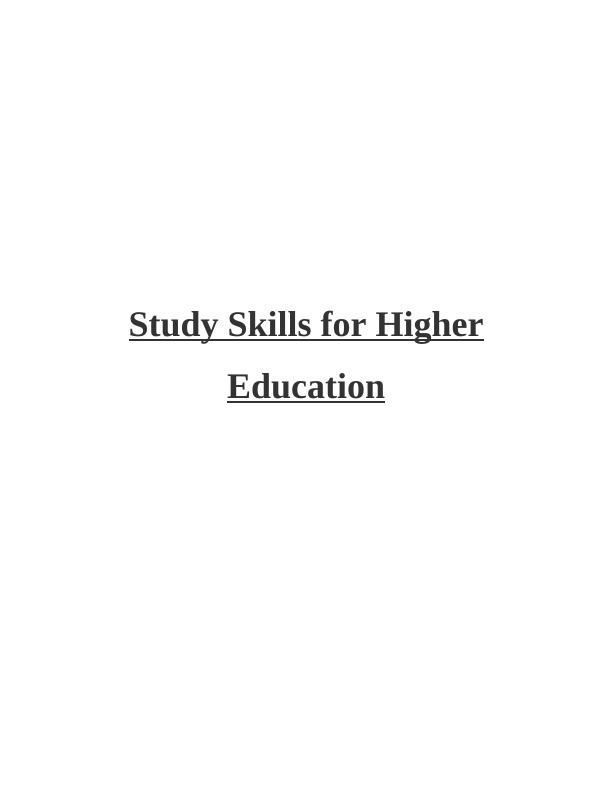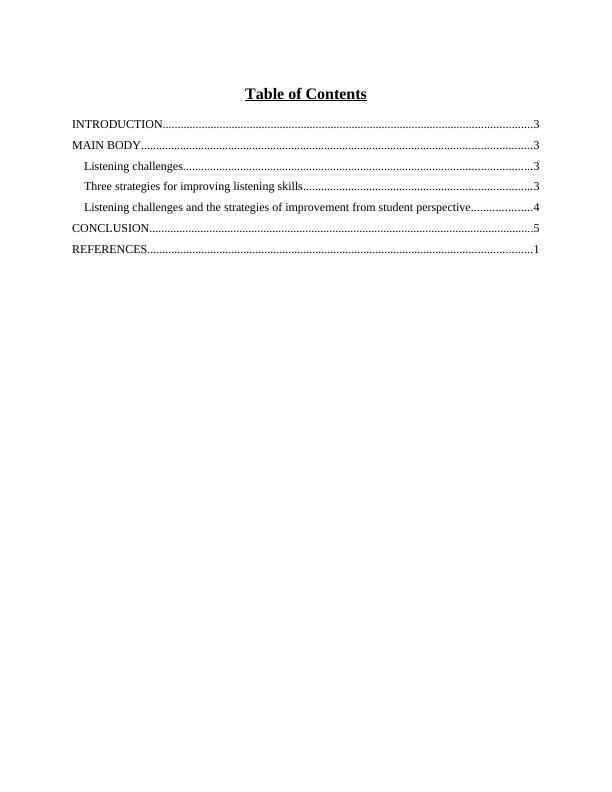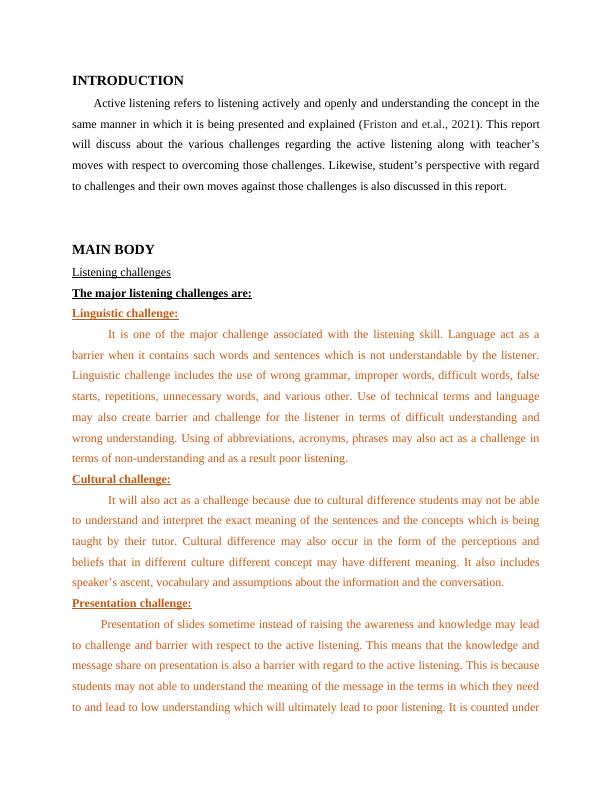Study Skills for Higher Education
Added on 2022-11-29
6 Pages1342 Words422 Views
End of preview
Want to access all the pages? Upload your documents or become a member.
Challenges and Strategies for Improving Listening Skills in Higher Education
|6
|2058
|428
Study Skills for Higher Education
|6
|1344
|275
Challenges and Strategies for Improving Listening Skills in Academic Context
|6
|2009
|382
Study Skills for Higher Education
|6
|1293
|303
Challenges and Strategies for Improving Listening Skills in Higher Education
|7
|1367
|425
Challenges and Strategies for Effective Listening in Higher Education
|8
|2123
|392



